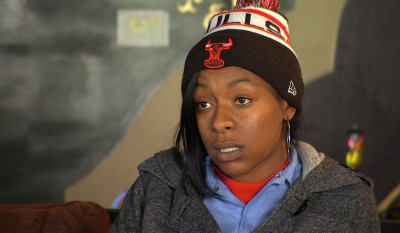What’s often missing from stories about crime in Oakland are the voices of young people in the city’s most economically depressed neighborhoods. They must wrestle with preconceptions about who they are and what they do.
For this week’s KQED Newsroom episode, I visited the nonprofit community group Youth UpRising in East Oakland to talk with three young people about their experiences growing up surrounded by violence. They were remarkably open about their lives.
Kenneth Munson, 24, described his childhood as “deprived.”
“I am 12, not old enough for a job, but I need things. I don’t eat three times a day. I am hungry.” Munson told me that desperation led to some poor choices. “I can go down the street ... and the first thing I might see is an opportunity. It could be someone robbing that liquor store. It could be someone selling or hanging on the streets, something that showed me some comfort or relief.”
As she listened to Munson talk, Tiera McGill nodded in agreement. The petite 26-year-old is the mother of a toddler. McGill said she understands how the need to survive sometimes forces people to become involved in crime. “They shouldn’t be judged,” she said. “Sometimes that is all you have. People have to make a living out here, especially for their child. Sometimes it may not be the best way, but it is the only way they know.”

For Ronald Easley, 23, making a living sometimes meant doing things that landed him in trouble with the law. He said his parents were drug addicts and that he’s been taking care of himself for most of his life. Easley said he started carrying guns when he was 13. He has been in and out of juvenile hall and jail. Now the father of a 4-month-old son, Easley said he is working two jobs to try to turn his life around. But Easley told me he isn’t ready to leave street life completely.